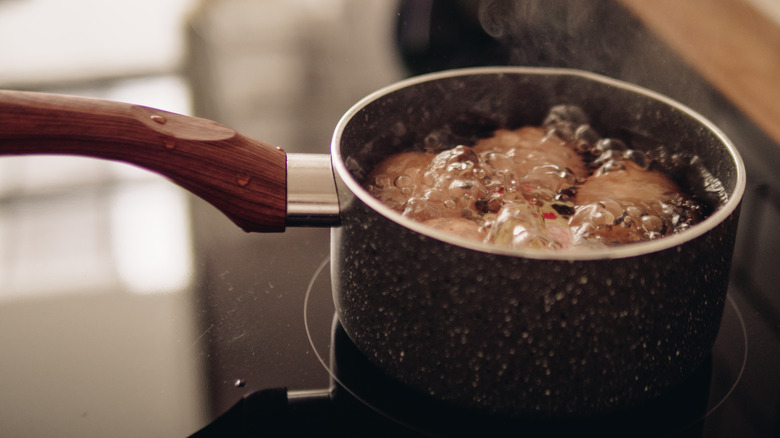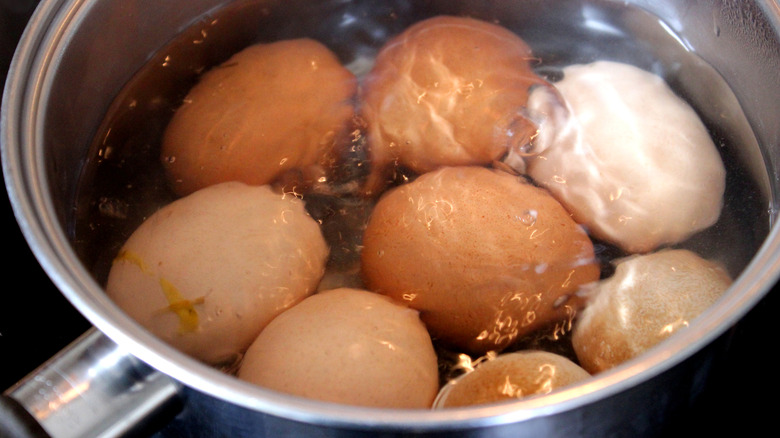The Easy Fix To Stop Bursting Hard-Boiled Eggs
From scrambled to sunny-side-up and, of course, hard-boiled, you can cook up so many tasty dishes with just a single egg. But anyone who's ever boiled their eggs to make a few deviled eggs for a potato salad may have run into a very common problem before: Spider-web cracks running up and down the egg once they're taken out of the water.
Aside from the yolk and the white, eggs also have a little bit of air inside them. When you boil the egg, this small pocket of air expands, pushing against the shell of the egg. If the heat is too great, the pressure also builds until the egg cracks from the stress. In extreme cases, such as when you try to warm a whole hard-boiled egg in a microwave, the pressure can get high enough that the egg literally turns into an egg-plosive and pops in a shower of hot steam.
Fortunately, you don't have to be content eating cracked, overcooked hard-boiled eggs all the time. You only need to do one simple trick: Lay it in cool water first, then boil the water (plus the eggs) from there!
Why you should always start with a pot of cool water
Cracking often happens because people try to drop their eggs into a pot of boiling water right away. The eggs will experience temperature shock and thus, crack like ... well, an egg. To avoid this, you'll want to do the opposite — put your eggs into a pot of cool tap water. Preferably, the eggs should be at room temperature, or as close as possible to the water's temperature, to ensure they heat up evenly alongside the water. Then, fire up the stove. The water, plus the eggs, will heat up in sync, perfectly cooking the eggs by the time the water starts to bubble.
This method will help you solve a separate problem that could also cause your eggs to develop cracks. Eggshells, while seemingly solid, are actually porous. As they heat up, the air inside the egg can escape through tiny pores (that's why you can sometimes see tiny bubbles floating up from the eggs as they boil.) If they're boiled too harshly, they can cause these bubbles to form rapidly and push the eggs around in the pot. As physics dictates, if you're boiling a full clutch of eggs, they'll clink into one another and crack. By warming up slowly with the water, you'll be able to keep the eggs still and safe!

